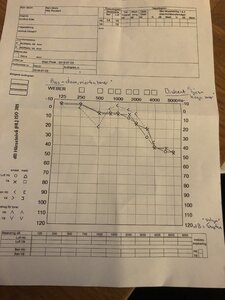- Dec 21, 2019
- 319
- Tinnitus Since
- 2014, 10/2019
- Cause of Tinnitus
- School Band, Noxious Car Radio
I suspect that FX-322 will have great benefits for many people. However it is important to be aware that the only sure fire solution is full restoration of the auditory system. Many hearing disorders, and the ear as a whole, are poorly understood by science at this time.I really want FX-322 to work, but I wonder if we are all getting our hopes up too high. I don't want to be pessimistic or a killjoy, but what if it either doesn't get through the trials or on to the market or is shown to be not that effective? I feel many of us, me included, would be in for a massive anti climax.
Anybody else have these thoughts?
What really matters about FX-322 in my eyes is that it has the potential to completely shift the expectations of patients to demand more from research than mindfulness, yoga, CBT, and other coping mechanisms that do not impact symptoms. When regenerative medicine is in the public consciousness it could change everything, not just for tinnitus but all chronic diseases.

 Member
Member
 .
.